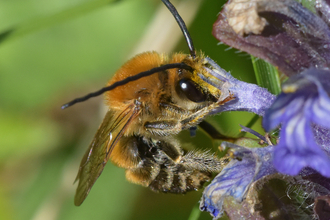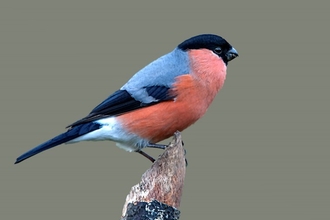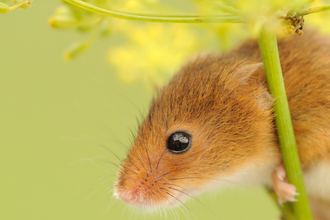Wildlife Recovery Appeal - Kingcombe's Wild Energy
An uncertain future for Dorset's wildlife
Over the last century, thousands of species-rich meadows, hedgerows, and ponds have been lost, and nature’s complex connections have been severed. Our wildlife is struggling to survive and faces an uncertain future, driven into isolated havens.
We urgently need your help to change this. By making the most of the abundance of nature already found within Kingcombe National Nature Reserve, you can help give rare and common wildlife the chance to breed, feed and move freely, making new connections over vast areas of West Dorset.
Your donation will help to plant trees, restore ponds, create meadows, re-wild rivers and also pay for Conservation Officers who work with farms and landowners, helping them manage their land with wildlife in mind.

By giving £50
Species-rich meadows can teem with insects and pollinators.
By giving £100
Rare birds like yellow hammers and bullfinches can begin to flourish.
By giving £250
You will give wildlife the power to reconnect and thrive.Making the most of the abundance of nature found within Kingcombe, we can give wildlife the best possible opportunity to breed, feed, and move freely, beyond boundaries, creating new connections over massive areas.
Introducing Kingcombe National Nature Reserve (https://youtu.be/bEuQf4ZNA6E)
Video courtesy of Natural England
We must act now
We need to unleash Kingcombe's Wild Energy before it's too late.
Your donation will allow us to do that.
Act now, for the survival of Dorset's wildlife
Your questions answered
Dorset's wildlife faces an uncertain future. Your donation is important to its long-term survival, but we wanted to explain why.
Why is wildlife in decline?
The world is facing a major ecological crisis. Increased urbanisation, pollution, climate change, and diseases like ash dieback are all devastating the habitats wildlife calls home.
Nature is becoming isolated in nature reserves, like Kingcombe National Nature Reserve. But plants and animals need to move. To flow. So they can spread freely and reconnect with nature in other parts of the county.
Why is my donation so important?
Large or small, your donation can help reconnect Dorset’s wildlife. Your gift could go towards planting trees, restoring ponds, creating meadows, re-wilding rivers and protecting rare species. It could also help pay for Conservation Officers who work with farmers and landowners around Kingcombe.
As part of our strategy to create a Wilder Dorset by 2030, we are striving to establish Nature Recovery Networks on land and sea, working closely with our neighbours and partners to agree long-term management that makes space for nature and supports communities and livelihoods.
Kingcombe’s Wild Energy will be the most ambitious nature recovery programme we have ever undertaken in Dorset.
To deliver this project, we need £300,000. We kick started this appeal with the help of three generous supporters who donated £165,000, but we urgently need your help to raise the remaining £135,000 in the next twelve months.
What makes Kingcombe National Nature Reserve so special?
The recent designation of Kingcombe National Nature Reserve, one of the UK’s finest wildlife sites, gives us a unique opportunity to tackle the ecological crisis and have a transformative impact on the diversity and abundance of nature in West Dorset.
It comprises two neighbouring nature reserves, Kingcombe Meadows and Powerstock Common, covering a mosaic of habitats across 309 hectares, including grassland, woodland and scrub on either side of the River Hooke.
Kingcombe Meadows is a paradise for wildlife, boasting thick hedgerows, stunning wildflower meadows and a patchwork of small fields unspoilt by fertilisers and pesticides. It’s home to dormice, otters, kingfishers and barn owls.
Meanwhile, the wet and dry grassland, scrub and woodland of Powerstock Common offer a rich list of rare, protected and much-loved species where adders, lesser horseshoe bats and great crested newts can all be found.
Can I visit Kingcombe National Nature Reserve?
YES! We'd love for you to visit Kingcombe National Nature Reserve. It comprises two neighbouring reserves, Kingcombe Meadows and Powerstock Common, covering a mosaic of habitats across 309 hectares on either side of the River Hooke in west Dorset.
Kingcombe Meadows is a paradise for wildlife, boasting thick hedgerows, stunning wildflower meadows and a patchwork of small fields unspoilt by fertilisers and pesticides. It’s home to dormice, otters, kingfishers and barn owls.
Powerstock Common offers a rich list of rare, protected and much-loved species. Adders, lesser horseshoe bats and great crested newts are all found in its wet and dry grassland, scrub and woodland.
Everything works better when it's connectedSir David Attenborough, President Emeritus of the Wildlife Trusts
Main banner photograph:
Kingcombe Meadows nature reserve © Mark Heighes



